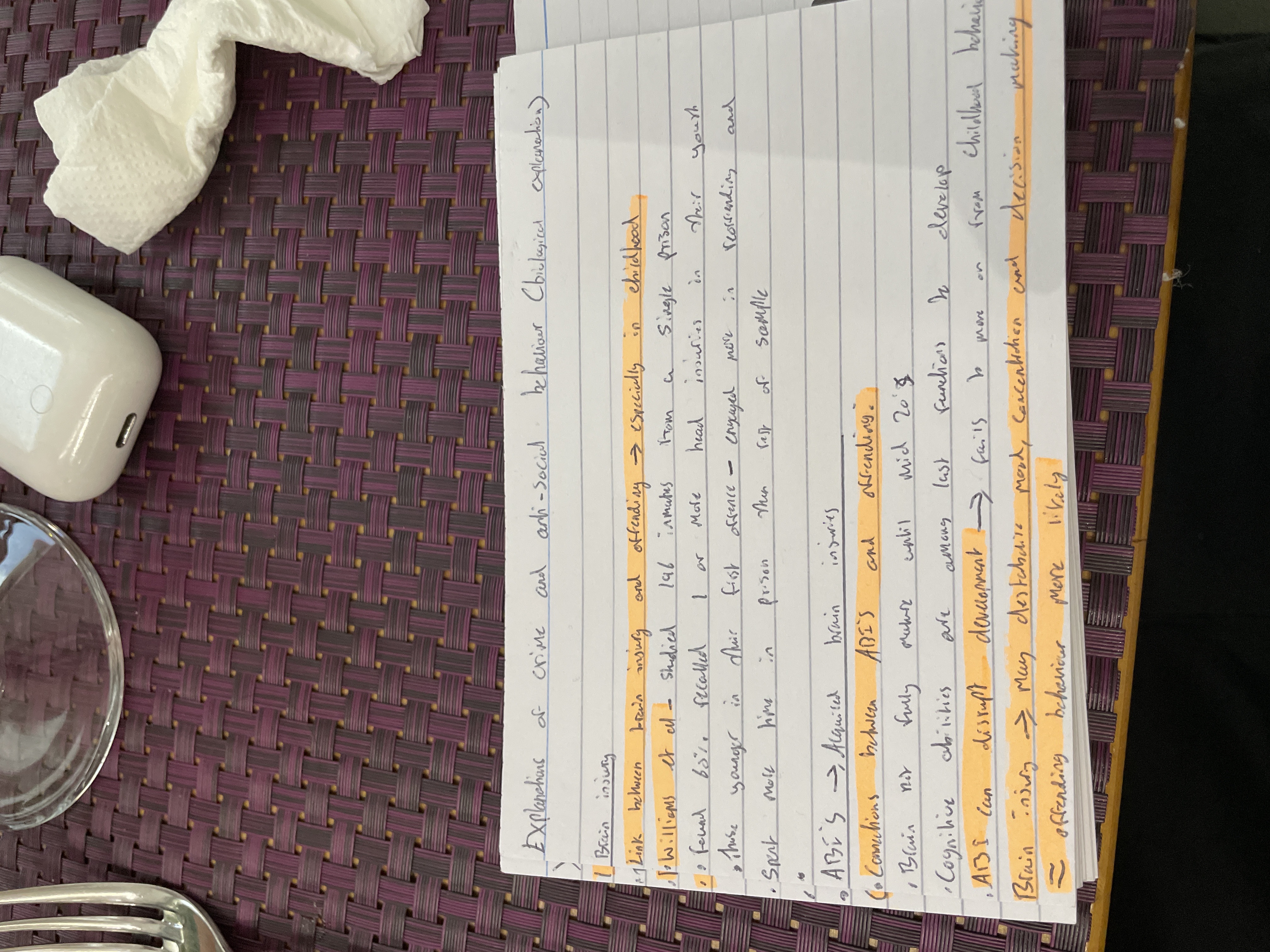What are the explanations of crime and anti-social behavior in relation to brain injuries?

Understand the Problem
The question is examining the relationship between brain injuries and anti-social behavior, particularly in the context of developmental aspects and cognitive functions.
Answer
Brain injuries disrupt cognitive development and moral reasoning, increasing antisocial behavior.
Brain injuries, such as acquired brain injuries (ABIs), can disrupt cognitive development, impacting decision-making and moral judgment. These disruptions are linked to increased antisocial and criminal behavior. Studies indicate that injuries in youth correlate with higher offending and re-offending rates due to impaired development of cognitive functions and moral reasoning.
Answer for screen readers
Brain injuries, such as acquired brain injuries (ABIs), can disrupt cognitive development, impacting decision-making and moral judgment. These disruptions are linked to increased antisocial and criminal behavior. Studies indicate that injuries in youth correlate with higher offending and re-offending rates due to impaired development of cognitive functions and moral reasoning.
More Information
The influence of brain injuries on behavior is often linked to changes in the frontal lobe and limbic system, impacting areas responsible for decision-making and emotional regulation.
Tips
A common mistake is overlooking how specific brain areas, like the frontal lobe, are crucial for understanding behavior changes due to injury.
Sources
- Higher level of aggression and antisocial behavior after head trauma - pmc.ncbi.nlm.nih.gov
- Traumatic Brain Injury and Related Antisocial Behavioral Outcomes - researchgate.net
- Mild Traumatic Brain Injury and Criminal Charges - jamanetwork.com
AI-generated content may contain errors. Please verify critical information